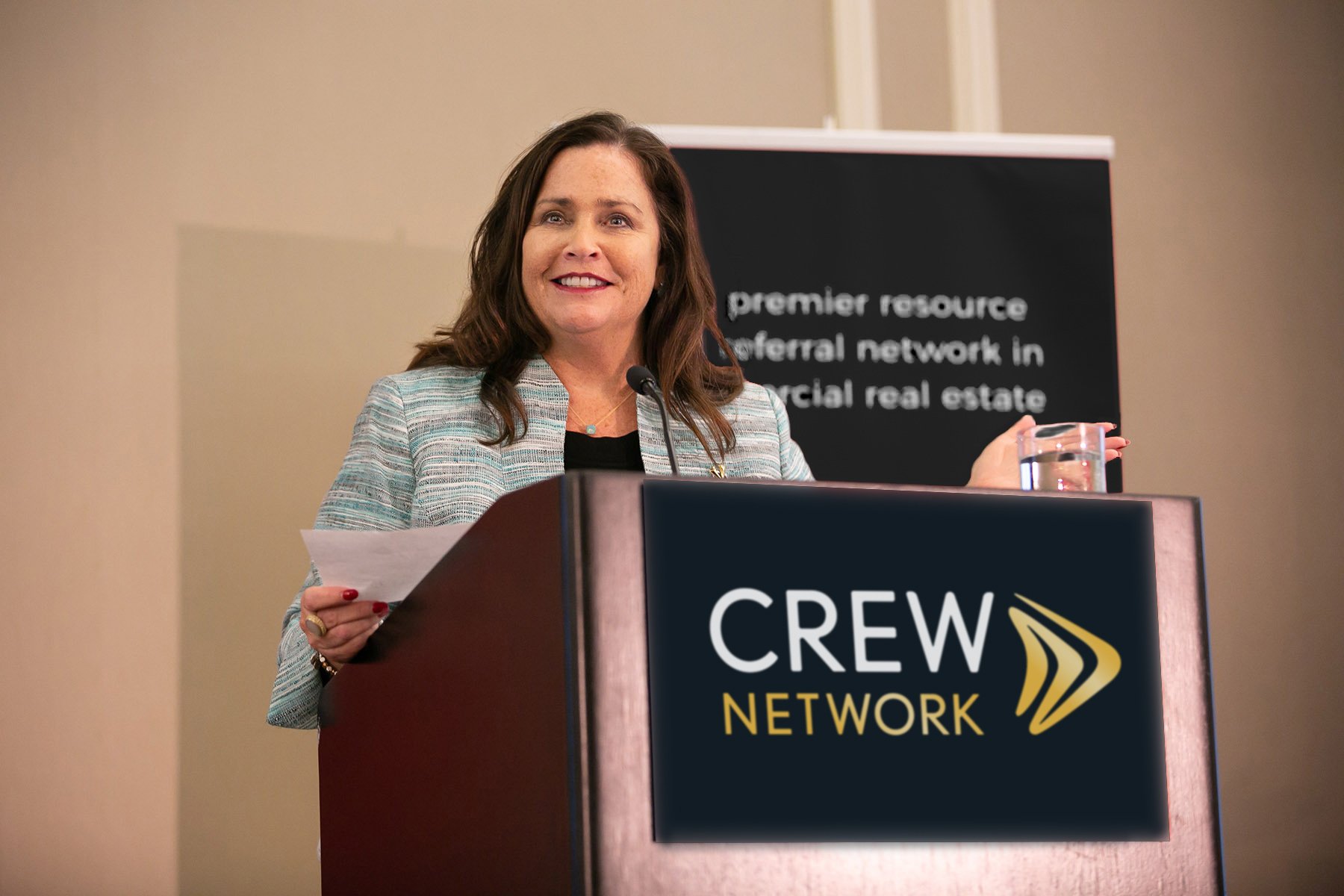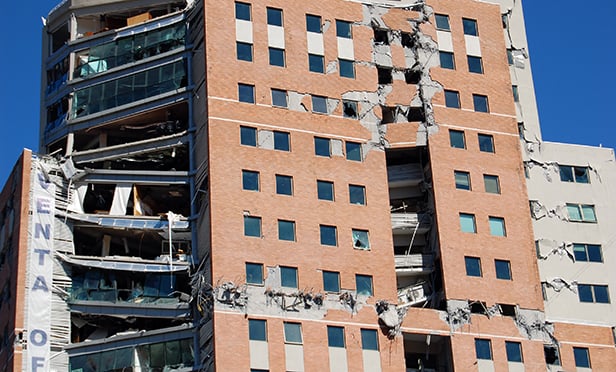Erika Morphy is co-editor of Debt and Equity Journal, from which this article is excerpted.
Washington, DC—With little fanfare, the National Association of Real Estate Investment Trusts reported last week the primary US REIT index delivered an eye-popping 34.35% return in 2006--outperforming other major US equity market benchmarks for the seventh year in a row. The best performing category was office, Nareit found, which delivered an average 45.22% return. Office was followed by healthcare, at 44.55%; self-storage at 40.95%; and multifamily at 39.95%. Not surprisingly, the REIT industry market cap has reached a new high at $439 billion, up 40% from a year ago.
Now that last year's figures have been tallied, the industry has already begun speculating whether it can beat or at least meet the same levels in 2007. There are concerns, if not among actual REITs then among third party investment advisors, that the performance of REITs may have peaked. Overly high valuations and dividends lower than 5% were oft-cited reasons in a series of interviews by Debt & Equity Journal.
Chris Cordaro, chief investment officer for Regent Atlantic Capital in Chatham, NJ and Bill Staton, chairman of Staton Financial Advisors in Charlotte, NC, for instance, both believe most if not all of the REITs on the market are overvalued. Yet the consensus of those in the informal survey is that REITs, even though priced at historically high values, will continue to deliver strong performance in 2007, for a variety of reasons that range from the fact that private equity is still eager to bring publicly owned assets into the fold to strong fundamentals.
"The flow of capital in real estate will support REIT pricing at current levels," says Timothy Pire, managing director of US public securities for Heitman Real Estate Securities LLC in Chicago. Even if there was a market correction of 10% to 15%, he says, private equity is still on a buying spree and will pick up the slack. Pire doesn't think current valuations though are necessarily ideal. "There is no question that REITs are trading at higher multiples than they ever had. Does that make me nervous? Yeah, a little bit. But I would be very nervous if private equity weren't still interested in these investments."
Pire is forecasting that private equity will slow the pace of its buying spree this year. "Part of the arbitrage profit no longer exists. The risk premium has compressed," he says. He believes that private equity has already factored in lowered performance expectations for the year, though. "I think 2007 will be an okay year, not a shoot-the-lights-out year," he adds.
Rick Imperiale, portfolio manager of the San Francisco-based Forward Progressive Real Estate Fund, which is comprised of US-based REITs, says he will be happy if valuations hold steady and REITs deliver earnings growth of 7% to 8%. "That, plus 3% to 4% in dividends will mean a 10% to 12% total return profile for publicly traded real estate." He agrees with Nareit's position that operating fundamentals are likely to remain strong in 2007, assuming there is no unexpected economic shock or sharp slowdown. "Demand continues to move forward as the economy improves. Meanwhile, new supply remains relatively subdued, so vacancies in most markets are going down," he says.
Valuations are a worry, Imperiale admits, but not as much as some managers say. "Public real estate valuations look slightly rich when using normal metrics," he says. "However, we don't think they are unreasonably expensive based on a forward-looking operating outlook." Also, he adds--and this is key to Imperiale's sanguine attitude towards valuations--REITs might look expensive now, but that is because they are factoring in not only improving real estate fundamentals, but also higher replacement costs. "This is not something I hear people talking about. I would estimate that construction costs and other inputs have risen 30% over the last few years," he adds.
Two REITs Imperiale likes are SL Green Realty Corp. in New York City and AMB Property Corp. in San Francisco. "SL Green is an excellent operator focused on B quality buildings in Manhattan where the rank and file work, not the high profile, class A trophy buildings. AMB Property is an industrial REIT that is specializing in high-throughput warehouses for the movement of freight, a narrow segment of the industrial market," he explains.
Russell Appel, founder and president of the Praedium Group in New York City, is also a believer in the REIT asset class. "I think REIT returns will continue to rise in 2007 for several reasons," he says. "One, underlying income and Funds From Operations will continue to increase due to market demand. Two, pension and defined contribution plans are increasing allocations in REITs. Also, international investors will continue to be attracted to them for various reasons including tax advantages. And finally, privatizations will continue to pull shares out of the system, which will then be reinvested in real estate." This is more of a structural than economic issue he says, but still pertinent to understanding valuations: the capital in the sector essentially stays the same while the number of shares decline, thus pushing prices higher. Appel notes that many investors do believe REITs are overvalued. "But I am still a believer that, relative to private equity market values, they are fine."
Leo Ullman, CEO of Cedar Shopping Centers Inc., a self-managed REIT focused on supermarket-anchored shopping centers and drug store-anchored convenience centers in Port Washington, NY, says focusing on just private equity and its effect on REITs is only half the story. "One factor that will continue to favor our industry is the fact that interest rates continue to hover in the mid-5% area. That has benefited us tremendously," he says. Cedar Shopping Centers raised approximately $130 million in mid-December through an equity offering.
As a result, Ullman says, "we have driven down total debt to our total capitalization ratio." The firm is planning several joint venture transactions this year, he adds. "But we still felt it was very important to raise additional equity."
Most REITs, in fact, can be expected to continue to refine strategies put into play last year. Howard Sipzner, Radnor, PA-based Brandywine Realty Trust's new CFO says the company will continue to sell off non-strategic assets and strengthen its presence in core markets. "The key for us is to identify and sustain occupancy gains and rental rates in our key markets. We have ambitious plans to do so in 2007."
Chris Volk, CEO of Spirit Finance, a Scottsdale, AZ-based REIT that focuses on sale-leaseback transactions for single-tenant operators, says it still can find good opportunities to invest in assets that deliver solid rates of return. "Our dividend yield is a little over 7% right now," he says.
Want to continue reading?
Become a Free ALM Digital Reader.
Once you are an ALM Digital Member, you’ll receive:
- Breaking commercial real estate news and analysis, on-site and via our newsletters and custom alerts
- Educational webcasts, white papers, and ebooks from industry thought leaders
- Critical coverage of the property casualty insurance and financial advisory markets on our other ALM sites, PropertyCasualty360 and ThinkAdvisor
Already have an account? Sign In Now
*May exclude premium content© 2024 ALM Global, LLC, All Rights Reserved. Request academic re-use from www.copyright.com. All other uses, submit a request to [email protected]. For more information visit Asset & Logo Licensing.








